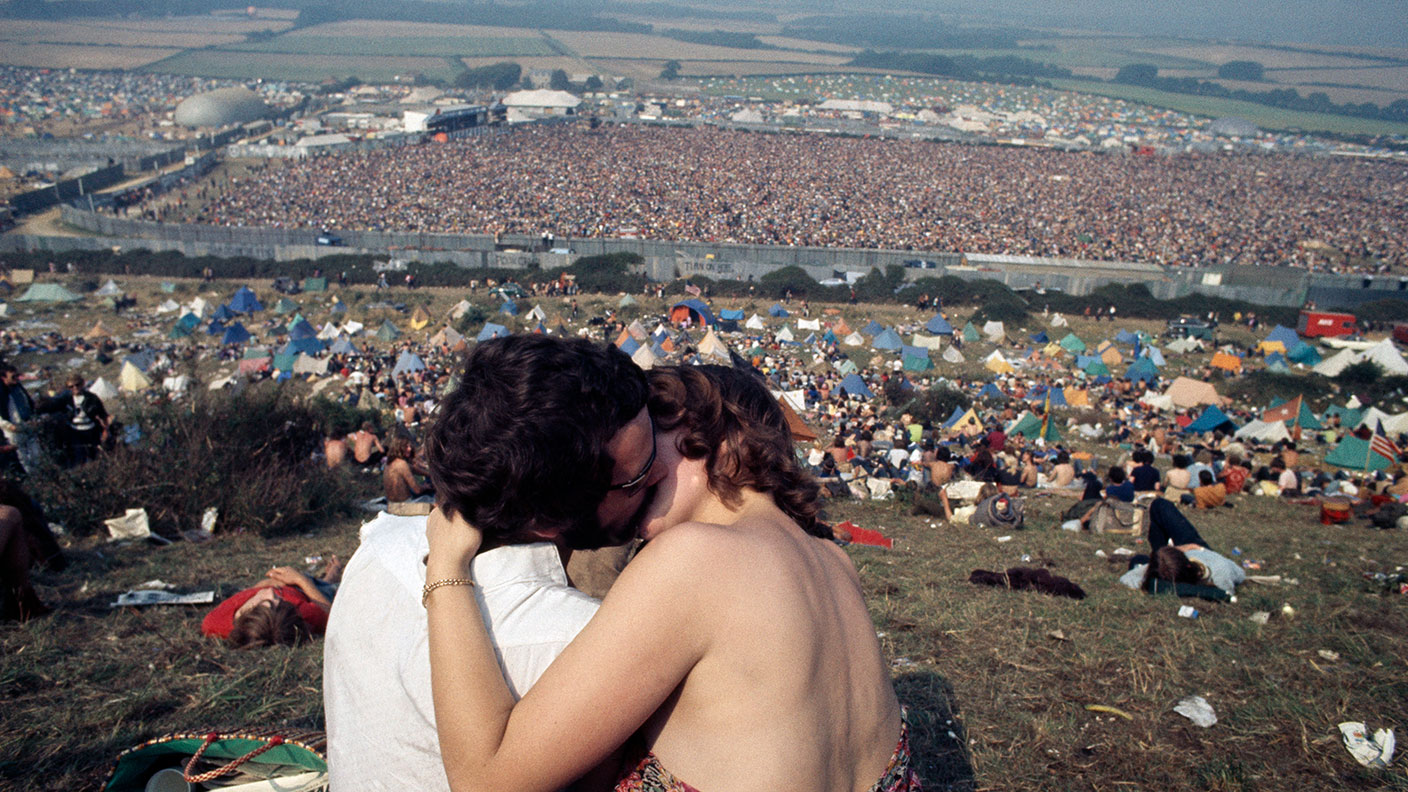
Get the latest financial news, insights and expert analysis from our award-winning MoneyWeek team, to help you understand what really matters when it comes to your finances.
You are now subscribed
Your newsletter sign-up was successful
Want to add more newsletters?

Twice daily
MoneyWeek
Get the latest financial news, insights and expert analysis from our award-winning MoneyWeek team, to help you understand what really matters when it comes to your finances.

Four times a week
Look After My Bills
Sign up to our free money-saving newsletter, filled with the latest news and expert advice to help you find the best tips and deals for managing your bills. Start saving today!
These days (well, not these days, but most years' days), there's a music festival every summer weekend on pretty much every spare plot of land from Thurso to Truro. Fresh-faced youngsters or whole families, depending on the niche the festival is intended to fill turn up with a bootful of freshly-bought equipment and set up camp, or rent eco-friendly tipis with composting toilets and solar showers. They settle down for a sophisticated weekend of the latest tunes and, if they're lucky, get a bit of a tan before leaving all their stuff in a filthy mess and heading home.
But things weren't always so sanitised.
The Isle of Wight held its first counter-cultural music festival in 1968. 15,000 young people came to see Jefferson Airplane headline. In 1969, 150,000 flocked to witness Bob Dylan's first live performance for three years.
MoneyWeek
Subscribe to MoneyWeek today and get your first six magazine issues absolutely FREE

Sign up to Money Morning
Don't miss the latest investment and personal finances news, market analysis, plus money-saving tips with our free twice-daily newsletter
Don't miss the latest investment and personal finances news, market analysis, plus money-saving tips with our free twice-daily newsletter
But it is the 1970 festival that most people (well, most people over 40) think of when you mention the Isle of Wight Festival. 600,000 people came to watch The Doors, The Who, Joni Mitchell, and the undisputed star of the show, Jimi Hendrix, strut their stuff. So many turned up without a ticket that it effectively became a free festival, after the perimeter fence was demolished. It was a cultural phenomenon – not quite Woodstock, but not far off. The Isle of Wight Festival remains the biggest festival ever held in the UK.
Unfortunately, it was a victim of its own success. The retired colonels and yacht-club members that made up much of the island's population weren't impressed with the vast number of unwashed hippies swarming over from the mainland. So they decided to put a stop to it.
As a result of their objections, the Isle of Wight County Council Act 1971 was passed, which made it effectively illegal to hold gatherings of more than 5,000 people on the island without jumping through an inordinately stringent set of bureaucratic hoops. The restrictions it imposed killed off the festival for 30 years.
The festival was revived in 2002 (though it has no connection to the original), and has been held there every year since.
Get the latest financial news, insights and expert analysis from our award-winning MoneyWeek team, to help you understand what really matters when it comes to your finances.

-
 The most single-friendly areas to buy a property
The most single-friendly areas to buy a propertyThere can be a single premium when it comes to getting on the property ladder but Zoopla has identified parts of the UK that remain affordable if you aren’t coupled-up
-
 RICS: UK housing market showing signs of 'tentative recovery'
RICS: UK housing market showing signs of 'tentative recovery'RICS members are becoming less negative about property sales and house prices. What does the latest data mean for the property market?
-
 31 August 1957: the Federation of Malaya declares independence from the UK
31 August 1957: the Federation of Malaya declares independence from the UKFeatures On this day in 1957, after ten years of preparation, the Federation of Malaya became an independent nation.
-
 13 April 1960: the first satellite navigation system is launched
13 April 1960: the first satellite navigation system is launchedFeatures On this day in 1960, Nasa sent the Transit 1B satellite into orbit to provide positioning for the US Navy’s fleet of Polaris ballistic missile submarines.
-
 9 April 1838: National Gallery opens in Trafalgar Square
9 April 1838: National Gallery opens in Trafalgar SquareFeatures On this day in 1838, William Wilkins’ new National Gallery building in Trafalgar Square opened to the public.
-
3 March 1962: British Antarctic Territory is created
Features On this day in 1962, Britain formed the British Antarctic Territory administered from the Falkland Islands.
-
10 March 2000: the dotcom bubble peaks
Features Tech mania fanned by the dawning of the internet age inflated the dotcom bubble to maximum extent, on this day in 2000.
-
9 March 1776: Adam Smith publishes 'The Wealth of Nations'
Features On this day in 1776, Adam Smith, the “father of modern economics”, published his hugely influential book The Wealth of Nations.
-
 8 March 1817: the New York Stock Exchange is formed
8 March 1817: the New York Stock Exchange is formedFeatures On this day in 1817, a group of brokers moved out of a New York coffee house to form what would become the biggest stock exchange in the world.
-
7 March 1969: Queen Elizabeth II officially opens the Victoria Line
Features On this day in 1969, Queen Elizabeth II took only her second trip on the tube to officially open the underground’s newest line – the Victoria Line.
